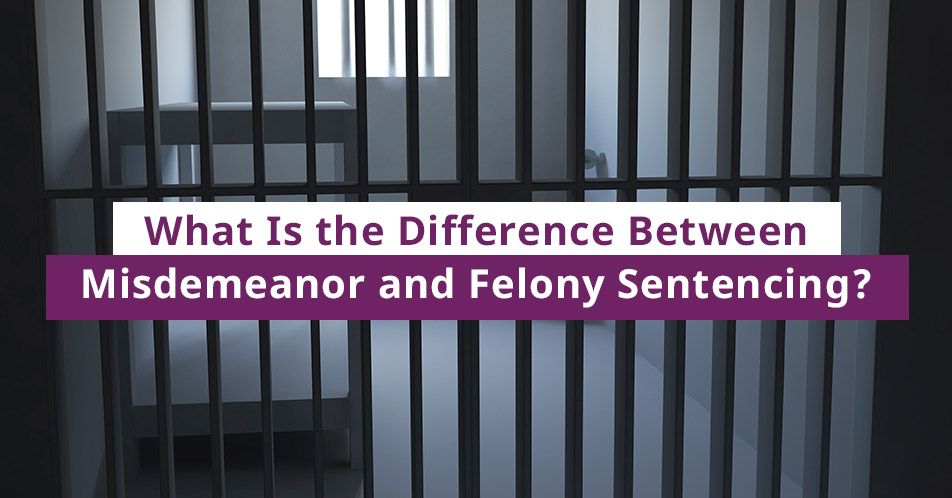
What Is the Difference Between Misdemeanor and Felony Sentencing?
When you are arrested under suspicion of having committed a crime, one of your first concerns is likely to be whether it will be charged as a misdemeanor or a felony. The answer can have serious implications for your future, so it is important to understand the difference. Here’s what you need to know about the two categories and what types of sentences to expect.
Misdemeanors
Misdemeanors are the less severe of the two classes of offenses. In most cases, you’ll only have to pay a fine or complete community service for a misdemeanor, though it is possible to get sentenced to jail time for more serious or repeat offenses. Typically, the maximum jail sentence for a misdemeanor is one year. If you do have to be incarcerated after a misdemeanor, you’ll be able to serve your time in a local or county jail as opposed to a state or federal prison.
Felonies
Felonies are far more serious than misdemeanors. This category includes offenses like murder, fraud, assault, arson and more. Within the felony class, there are several degrees, with first-degree being the most serious. In most cases, the punishment for a felony includes both fines and jail time. Prison sentences are typically for longer than a year, often several, so you’ll serve your sentence in a state or federal prison rather than a smaller local jail.
Felonies come with additional penalties as well. When you have a felony conviction on your record, depending on the jurisdiction of your case, you may no longer be able to vote or serve on a jury. You won’t be able to own or buy firearms either. Finally, many employers run background checks on job applicants, so you may find that your job prospects aren’t what they used to be. You may even be barred from specific industries, like law, education and the military, altogether.
Defending Your Case
In a felony case, you will most certainly need an attorney to advocate on your behalf. If you cannot afford a lawyer, the court can appoint one for you. With misdemeanors, on the other hand, you may not be eligible for a court-appointed lawyer, depending on the jurisdiction. For minor offenses, though, you likely won’t need one unless you plan to fight the charges. If you plan to plead “no contest” and complete the restitution, you can often represent yourself.
Secure Your Release after Your Arrest
Whether you are arrested for a misdemeanor or felony, you’ll want to get back to your loved ones as quickly as possible. Here at Free at Last Bail Bonds, we want to help you do just that. We’ll post your bail and get you out of jail so that you can go home while you wait to go to court. We are here for you 24 hours a day at 470-410-3409, so get in touch with us right away after your arrest.
We understand the importance and urgency of reuniting families. Contact us